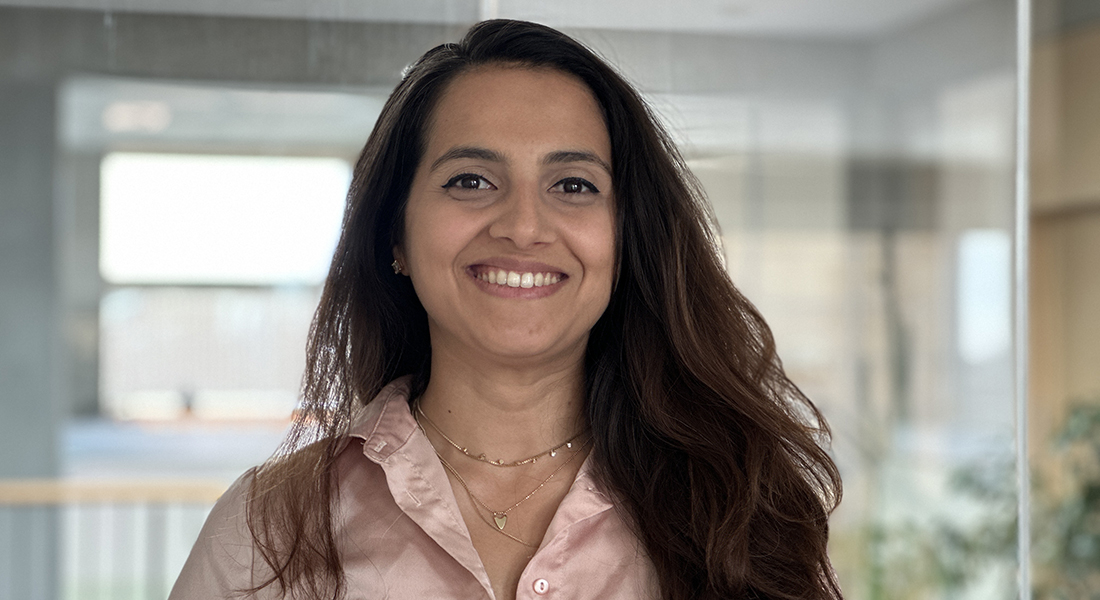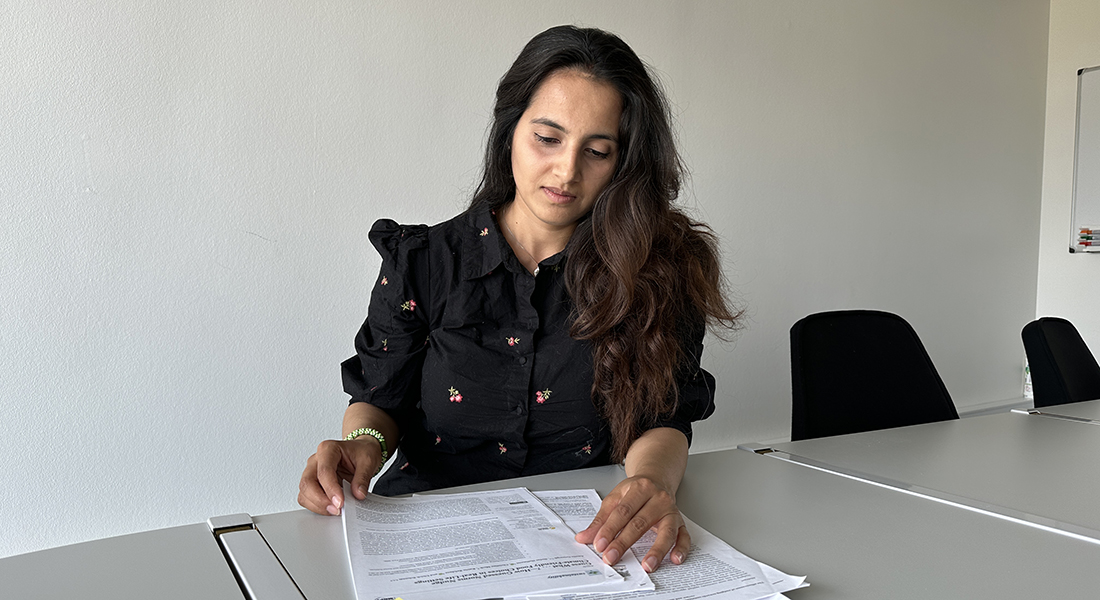PhD project explores more sustainable consumer habits in canteens
Can a cloud-based scaling system reduce Food waste and increase the intake of plant-based foods? In this article, PhD student Sujita Pandey talks about her research into which strategies can be implemented into canteen kitchens to make it happen.

This article is part of a series on the research carried out by PhD students at the Department of Food Science at the University of Copenhagen, UCPH FOOD. The research contributes to expanding our understanding of food and supports the food system with a view to delivering healthy, tasty, and sustainable foods.
Facts
PhD Sujita Pandey's project is a part of FOODRUS and is being supervised by Professor Marianne Thomsen. Associate Professor Annemarie Olsen and Professor Federico Jose Armando Perez-Cueto are co-supervisors.
The project started in 2020 and is expected to conclude in 2024. It is funded by the European Union’s Horizon 2020 research and innovation programme.
The study involves a cloud-based scaling system called FOODOP that is applied to measure food waste from different area in some of canteens. FOODOP is a scale placed under all dishes at the buffet that measures the total food consumed and leftovers. With these insights, the chefs at the canteen can plan and improve future menus by working on required quantities, environmental footprint and consumer preferences to reduce food waste.
PhD Sujita Pandey and her supervisors are collaborating with Jesper Torvekøkken and Hørkram.
Read scientific articles linked to the research:
What is the focus of your project?
The main focus of my project is to prevent and reduce food waste at the university canteens and reduce meat-based food consumption by changing canteen meals towards a more plant-based diet by offering alternative diet solutions.
What does your part of the project involve?
The main part of my project is to apply a mixed-method approach to understand consumers’ attitudes and behaviour towards reducing food waste behaviour and thereby design a nudging intervention for reducing food waste at the university canteen. Further, conduct a nutritional life cycle assessment to quantify nutrition loss and environmental impacts of food waste in the university canteen. Additionally, it promotes new meat alternatives and raises awareness about the environmental footprint associated with meat and food waste in general.
What inspired you to delve into this research field?
Finding an innovative solution for minimizing food waste and promoting sustainability.
How could your research potentially impact the food industry or consumer habits?
The findings from the research have great potential to reduce food waste in the food service sector. Some of the innovative strategies we have been considering and analysing might be crucial for influencing consumers towards sustainable and responsible consumption habits in out-of-home dining settings.

Does your research involve the study of food culture? If yes, what insights or cultural discoveries have you made in connection to your research?
Yes, the research greatly involves understanding the food practices and habits of Danish canteen users. Some of the interesting findings include the disparity between Danish consumers' attitudes or intentions and their actual food waste behaviour.
Does your research contribute to a more sustainable and environmentally friendly food production or consumption?
Yes, it does. The research aims to contribute to sustainable development goal 12.3 which is to reduce food waste at the retail and consumer level. The research involves designing nudging strategies to promote plant-based food consumption. As well as the project also uses innovative systems to measure food waste and improve future menu planning
Where are you currently in the process, and how is it progressing?
I am in my second year and with the continuous support of my supervisors and colleagues at the University of Copenhagen and Jespers Torvekøkken, the research project is going as planned. We have a baseline understanding of consumers’ attitudes and behaviour at the university canteen and are currently, working on understanding the effectiveness of the nudging intervention that was implemented at three Danish university canteen in March 2023.
What do you hope will come out of your work?
I hope my work can contribute to creating a more sustainable and equitable food system.
Contact
PhD fellow at the Department of Food Science, University of Copenhagen (UCPH FOOD), Sujita Pandey, sujita@food.ku.dk
or
Communications officer at UCPH FOOD Lene Hundborg Koss, lene.h.koss@food.ku.dk
